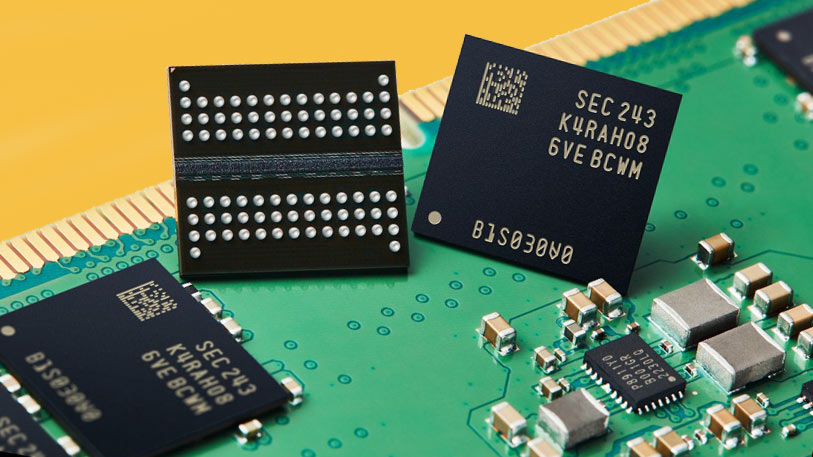
Samsung is developing a new type of memory called Low Latency Wide I/O (LLW) DRAM, which promises to bring together very high bandwidth, low latency, and low power consumption. The company positions its new memory for devices that need to operate large language models (LLMs) on-device, though such DRAMs could be used for a wide variety of client workloads.
Samsung's LLW DRAM is a low-power memory that features wide I/O, low latency and boasts a bandwidth of 128 GB/s, presumably per module (or rather a stack). To put the number into context, a 128-bit DDR5-8000 memory subsystem can offer a similar bandwidth of 128 GB/s. Meanwhile, one of the key features of Samsung's LLW DRAM is its low power draw of 1.2pJ/bit, yet Samsung does not disclose at what data rate its LLW DRAM hits the said power consumption.
For now, Samsung does not disclose many details about its LLW DRAM, though the company has been exploring memory with wide interfaces (e.g., GDDR6W) for a while. Meanwhile, it is possible (and we are speculating here) that Samsung's LLW takes a page from GDDR6W and uses multiple DRAM devices integrated into one package using a Fan-Out Wafer-Level Packaging (FOWLP) technology to expand the interface and combine capacity, performance, and low power consumption.
Considering that Samsung standardized its GDDR6W in Q2 2022 and planned to use it for artificial intelligence, high-performance computing accelerators, and client PCs, it is likely that LLW DRAM is positioned for something else. Given the low-power nature of the standards, we can envision such applications as edge computing devices with AI capabilities, smartphones, notebooks, and perhaps automotive applications.
Samsung rarely discloses when its promising technologies are set to hit the market, so we can only guess when LLW DRAM makes it to actual devices. Meanwhile, because Samsung has unveiled details about the expected performance of the technology, its development is likely more or less complete.







